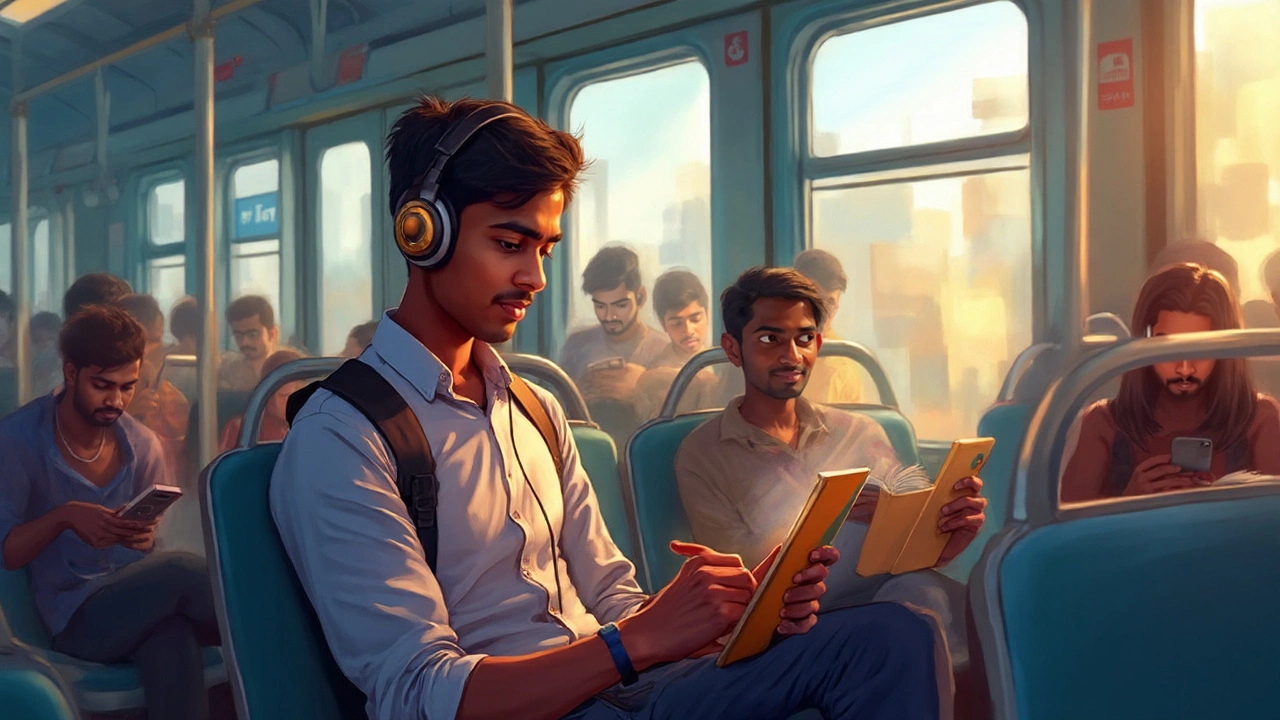Picture this—it’s pouring outside. Chennai traffic is absolute chaos. Yet, while your classmates are stuck waiting for the bus, you’re wrapped in your coziest pajamas, drinking steamy filter coffee, and working through calculus problems or listening to your favorite English lecturer from your couch. No dress codes, no distance, just you and your education. Here’s a bold claim: for many of us, distance learning isn’t just convenient—it’s better. Why? Let’s break it down.
Freedom and Flexibility: Learning Designed Around Your Life
Everybody says time is money, but most of us spend hours just getting to college, waiting for classes, or hunting for hard-to-find reference books. Distance learning kicks all of that out of the equation. You get to set your own schedule. Early bird? Log in at sunrise. Night owl? Study after midnight. If you’re juggling a part-time job, helping out at home, or prepping for other exams, online education lets you slot school work into your life, not the other way around.
A student from Anna University in 2024 managed a full-time internship at Zoho, cracked online lectures in the evenings, and still scored a first class. Stories like his aren’t rare anymore. Distance education caters to individual learning speeds—if you don’t get a lesson the first time, just replay the video. Need a breather? Hit pause and grab a snack without missing anything.
One more thing: many people with chronic illnesses or disabilities find traditional classroom settings exhausting or sometimes not accessible. Online classes remove that barrier. Anyone with Wi-Fi and determination can participate, making higher education less about privilege and more about access. Does it get any fairer than that?
Diverse Options, From Anywhere on Earth
Think about it: how often do friends dream about studying at some far-away university? The tuition, visas, rent—it’s a nightmare for most middle-class families in India. Distance learning smashes that wall. Use your old laptop in Chennai but learn from MIT, Oxford, or Delhi University. The best instructors in the world are just a few clicks away.
Online courses don’t stick you with one rigid syllabus. You can pick exactly what you want: data science, creative writing, marketing analytics, classical Tamil literature—mix and match as you fancy. Skill-based certifications have exploded since 2020, and with platforms like Coursera, Udemy, or SWAYAM, the options just keep growing.
| Popular Distance Learning Platforms (2025) | Countries Served | No. of Courses |
|---|---|---|
| Coursera | Worldwide | 7500+ |
| SWAYAM | India | 2500+ |
| edX | Worldwide | 3500+ |
| IGNOU | India | 500+ |
| Khan Academy | Worldwide | 1000+ |
Unlike old-school distance education—basically two fat textbooks and zero support—modern online learning gives you interactive forums, 24x7 doubt-solving groups, mock tests, and live mentoring. Stuck on a coding bug at 2am? There’s a Discord group awake and ready with help.

Getting More Value—Saving Your Wallet and Your Sanity
Let’s face it—college life sounds glamorous until you pay the bills. Everything adds up: bus pass, hostel fees, textbooks, five cups of tea a day, and don’t even get me started on photocopy shops. Distance learning gives your bank account a break. Most online degrees or certification courses are much cheaper than traditional ones, since the colleges aren’t spending lakhs of rupees on maintaining buildings, campus lawns or staff hostels.
Here’s a cool stat: The average annual fee for a full-time engineering program in a private Chennai college in 2025 is around ₹1.65 lakhs. IGNOU offers the same engineering degree online for under ₹38,000 a year. That’s not a tiny difference, that’s a bike’s worth of savings every year. Plus, you can keep working and earning while studying—no double loans or draining your parents’ PF.
Mentally, distance learning is a heaven-send if you’re stressed in social settings. No event-club politics, no attendance wars. Just you, your course, and the freedom to learn at your pace. Some studies from India’s National Institute of Open Schooling show that dropout rates are way lower when students feel in control of their learning routine. Others report fewer cases of burnout, anxiety, and exam pressure when compared to brick-and-mortar colleges, especially in large metro cities.
Modern Skills for the Real World
If you thought distance learning was only about ‘theory’, think again. Online education is all about being hands-on. Project-based learning, group assignments over Zoom, digital presentations, coding sprints—these push you to be tech-savvy and resourceful. In a job interview, you can honestly brag about being a champion at remote work, managing deadlines without constant nagging, and collaborating with people from Kerala to Canada.
Employers in 2025 know the world doesn’t run on degrees alone. They focus more now on practical skills: can you write that script, pitch that idea, code that website, sell that product? Distance education forces you to be pro-active and independent, which are exactly the skills that’ll boost your career.
The biggest markets for freshers—like IT services, digital marketing, and e-commerce—love self-learners. Companies like TCS, Infosys, and Zoho invite online-certified candidates to placements, provided you can demonstrate your skills. Did you know: TCS’s 2025 campus program has almost 18% of its entry-level hires coming from *distance learning* graduates?
So if you want flexibility, diversity, savings, and future-ready skills, distance learning is more than just a backup plan. It's a route to success that fits real lives and real dreams. Stop worrying about missing out and start exploring what remote study can really offer.
